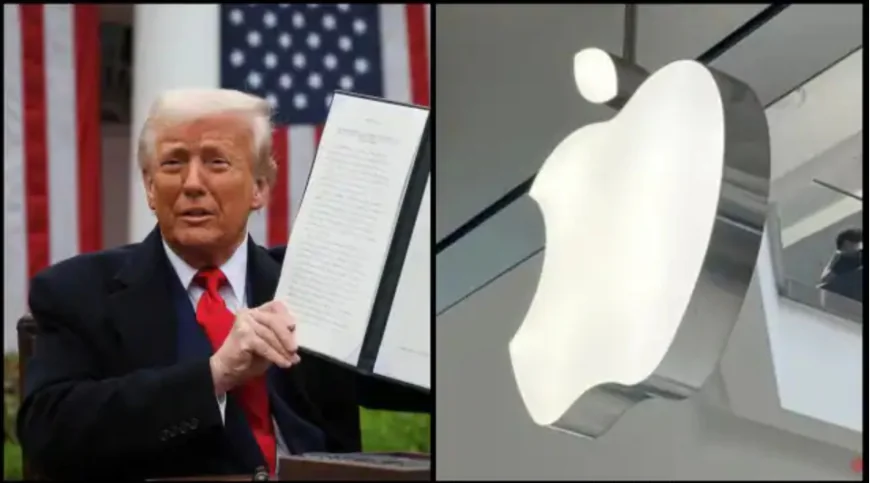Trump Threatens Apple with 25% Tariff Over Foreign iPhone Production
Trump threatens Apple with a 25% tariff if it doesn’t build iPhones in America

U.S. President Donald Trump has issued a stark warning to Apple, threatening a 25% tariff on iPhones not manufactured within the United States.

In a post on Truth Social, Trump reiterated his long-standing expectation that Apple produce iPhones sold in the U.S. domestically, rather than in countries like India. “If not,” Trump stated, “Apple must pay a tariff of at least 25%.”
This follows Trump’s recent remarks during his Middle East trip, where he publicly expressed disappointment with Apple CEO Tim Cook over the company’s expansion of iPhone production in India. Trump recounted a conversation with Cook during their meeting in Riyadh, saying, “Tim, you’re my friend, I treated you very good. But now I hear you’re building all over India—I don’t want that.”
Apple has been shifting a portion of its production from China to India in an effort to diversify its supply chain. The company plans to manufacture a significant share of iPhones for the U.S. market in India by the end of 2025. However, experts note that China will remain vital for producing the most technically complex devices and components for the foreseeable future.
This warning from Trump comes amid speculation that Apple may increase the price of its next iPhone lineup. The upcoming iPhone Pro Max could retail for as much as $1,900, though Apple has indicated that any price hikes would stem from new features and designs, not political factors.
Despite a partial rollback of trade penalties, the U.S. still imposes a 20% tariff on smartphones assembled in China. Apple has previously absorbed tariff-related costs through operational efficiencies, but analysts suggest ongoing geopolitical tensions and rising production expenses may eventually lead to higher prices for consumers.
While Apple hasn’t responded to Trump’s comments, analysts believe any potential cost increases will be framed around innovation, not trade disputes.



 Williams
Williams